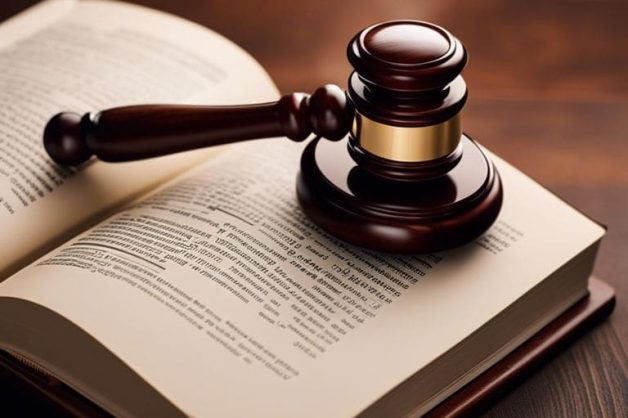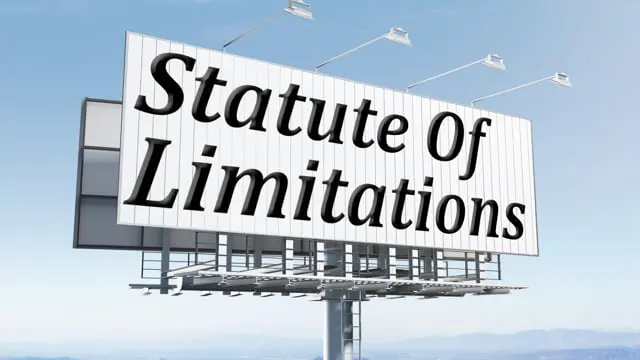Dispute resolution is a critical aspect of the legal system that provides various methods for resolving conflicts without resorting to litigation. Understanding these legal methods is essential for anyone involved in a conflict, whether it is a business disagreement, a family dispute, or a contractual issue. This comprehensive guide explores the different dispute resolution techniques, their benefits, and how to navigate them effectively.
What is Dispute Resolution?
Dispute resolution encompasses various processes used to resolve conflicts between parties. The primary goal is to reach a mutually acceptable solution without going to court. This field includes several methods, such as negotiation, mediation, arbitration, and collaborative law. Each method offers unique advantages and is suitable for different types of disputes.
Negociación is a voluntary process where parties directly communicate to resolve their conflict. It is often the first step in dispute resolution and can lead to a settlement without formal procedures.
Mediación involves a neutral third party, known as a mediator, who helps the disputing parties communicate and reach a mutually acceptable agreement. Mediation is particularly useful in disputes where preserving relationships is important.
Arbitraje is a more formal process where a neutral third party, known as an arbitrator, hears both sides of the dispute and makes a binding decision. Arbitration is commonly used in commercial disputes and is favored for its efficiency and confidentiality.
Collaborative law involves both parties and their attorneys working together to resolve disputes amicably. This method is often used in family law cases, such as divorce, where maintaining a cooperative relationship is beneficial.
Benefits of Alternative Dispute Resolution (ADR)
Alternative Dispute Resolution (ADR) offers several benefits over traditional litigation. These methods are typically faster, less expensive, and more flexible. ADR allows parties to maintain control over the outcome and tailor solutions to their specific needs.
Cost-Effective: ADR methods are generally less costly than litigation, as they avoid the high tarifas associated with court proceedings. This makes ADR an attractive option for individuals and businesses seeking to resolve disputes efficiently.
Time-Saving: ADR processes are usually quicker than litigation, which can drag on for months or even years. Mediation and arbitration can often be completed in a matter of weeks or months.
Confidencialidad: Unlike court cases, which are public record, ADR proceedings are private. This confidentiality is particularly important in business disputes where sensitive information is involved.
Preservation of Relationships: ADR methods, such as mediation and collaborative law, focus on cooperation and communication, helping parties preserve their relationships. This is especially valuable in family law cases and business partnerships.
Flexibilidad: ADR allows parties to design a process that fits their specific needs. They can choose the timing, location, and procedures, providing a more personalized approach to conflict resolution.
The Role of Mediation in Dispute Resolution
Mediación is a widely used ADR method that emphasizes communication and cooperation. The mediator, a neutral third party, facilitates discussions between the disputing parties, helping them identify issues and explore potential solutions. Mediation is voluntary, and the mediator does not impose a decision; instead, the parties retain control over the outcome.
Mediation is particularly effective in disputes where maintaining a relationship is important, such as family conflicts, neighbor disputes, and business partnerships. The process encourages open communication and allows parties to express their concerns in a safe and structured environment.
During mediation, the mediator guides the discussion, ensures that each party has an opportunity to speak, and helps clarify misunderstandings. The goal is to reach a mutually acceptable agreement that addresses the needs and interests of both parties. If successful, the mediator will draft a written agreement outlining the terms of the settlement.
Arbitration as a Binding Dispute Resolution Method
Arbitraje is a formal ADR method where a neutral arbitrator hears both sides of the dispute and makes a binding decision. Unlike mediation, arbitration resembles a court proceeding, with evidence presentation, witness testimonies, and legal arguments. However, arbitration is usually less formal and more flexible than court litigation.
Arbitration is often used in commercial disputes, such as contract disagreements, employment issues, and consumer complaints. Many contracts include arbitration clauses, requiring parties to resolve disputes through arbitration rather than litigation.
The arbitration process begins with the selection of an arbitrator, who is typically an expert in the subject matter of the dispute. Both parties present their cases, and the arbitrator evaluates the evidence and arguments. After considering all aspects of the case, the arbitrator issues a binding decision, known as an award.
One of the main advantages of arbitration is its finality. The arbitrator’s decision is binding, and there are limited grounds for appeal. This provides parties with a clear resolution and avoids the prolonged uncertainty of court appeals.
Collaborative Law in Family Dispute Resolution
Collaborative law is an ADR method specifically designed for resolving family law disputes, such as divorce and child custody. In this process, both parties and their attorneys commit to working together to reach a settlement without going to court. The collaborative approach emphasizes cooperation, respect, and open communication.
In collaborative law, each party has their attorney present to provide legal advice and support. The process often involves a series of joint meetings where parties discuss their concerns, negotiate terms, and work towards a mutually agreeable solution. Collaborative law may also involve other professionals, such as financial advisors, child specialists, and mental health professionals, to address specific issues.
The key feature of collaborative law is the commitment to avoid litigation. If the parties cannot reach an agreement and decide to go to court, the collaborative attorneys must withdraw, and the parties must hire new representation. This encourages parties to stay engaged in the collaborative process and find a resolution.
Choosing the Right Dispute Resolution Method
Selecting the appropriate dispute resolution method depends on several factors, including the nature of the dispute, the relationship between the parties, and the desired outcome. Here are some considerations for choosing the right method:
Nature of the Dispute: Different disputes require different approaches. For example, mediation may be suitable for family and neighbor disputes, while arbitration may be better for commercial and contractual conflicts.
Relationship Between Parties: If maintaining a relationship is important, methods that emphasize cooperation, such as mediation or collaborative law, may be more appropriate. In contrast, arbitration may be suitable for disputes where relationships are less critical.
Desired Outcome: Consider whether you need a binding decision or prefer to retain control over the outcome. Arbitration provides a binding resolution, while mediation and negotiation allow parties to design their settlement.
Confidentiality Needs: If privacy is a concern, ADR methods like mediation and arbitration offer confidentiality, whereas court cases are public records.
Cost and Time: Evaluate the cost and time implications of each method. ADR methods are generally quicker and less expensive than litigation, making them attractive options for many disputes.
The Importance of Legal Representation in Dispute Resolution
While ADR methods aim to simplify dispute resolution, having skilled representación legal is still crucial. An experienced attorney can provide valuable guidance, ensure that your rights are protected, and help navigate the complexities of the chosen ADR process.
Mediación: In mediation, an attorney can help you prepare your case, understand your legal rights, and negotiate effectively. They can also review the final agreement to ensure it protects your interests.
Arbitraje: Legal representation is essential in arbitration, as the process involves presenting evidence, cross-examining witnesses, and making legal arguments. An attorney can help you build a strong case and advocate on your behalf.
Collaborative Law: In collaborative law, your attorney plays a vital role in providing legal advice, facilitating negotiations, and ensuring that the final agreement meets your needs. They also help coordinate with other professionals involved in the process.
When seeking legal representation, it is important to choose an attorney with experience in ADR methods relevant to your dispute. Attorneys.Media offers a comprehensive directory of legal professionals specializing in various areas of dispute resolution. By using this resource, you can find an attorney who meets your needs and has a proven track record of success.
Conclusión
Dispute resolution offers various methods for settling conflicts without resorting to litigation. By understanding and utilizing these methods, individuals and businesses can resolve disputes efficiently, cost-effectively, and amicably. Whether you choose negotiation, mediation, arbitration, or collaborative law, having skilled legal representation can significantly impact the outcome of your case. Use resources like Attorneys.Media to find experienced attorneys who can guide you through the dispute resolution process and help you achieve a favorable resolution.
Type of Attorney and How to Find Them on Attorneys.Media
For issues related to dispute resolution, it is essential to consult with an attorney specializing in resolución alternativa de litigios (RAL). These attorneys are skilled in various ADR methods, including mediation, arbitration, and collaborative law, and can provide expert guidance on the most effective way to settle your conflict.
To find a qualified ADR attorney, you can use the directory available on Attorneys.Media. Start by visiting the website and exploring the “Dispute Resolution” or “Legal Procedures” categories. These sections feature profiles of attorneys who specialize in ADR and related legal issues. Each profile provides comprehensive information about the attorney’s background, areas of expertise, and contact details, allowing you to choose the best legal professional for your needs.
When selecting an ADR attorney, consider their experience in handling cases similar to yours. Look for attorneys with a proven track record of success in resolving disputes through mediation, arbitration, or other ADR methods. Reading reviews and testimonials from previous clients can offer valuable insights into the attorney’s effectiveness and dedication to their clients. By leveraging the resources on Abogados.Media, you can find a knowledgeable and experienced ADR attorney who will advocate for your rights and help you achieve a favorable resolution to your dispute.
Attorneys.Media Video Document References
- Is Personal Injury Part of Your Law Practice?
- As an Attorney, How Are You Generating Content for Your Online Presence?
- How Can You Help Potential New Clients Get Their Questions Answered?
- How Do You Differentiate Yourself When Someone Looks Online for Help?
- How Do You Differentiate Yourself as a Criminal Defense Attorney?
- Have You Been Thinking About Video Marketing for Your Law Firm?
- Should Attorneys Use Video Marketing to Attract New Clients?
- What Do Potential Clients See When They Research Your Name Online?
- Cómo puede ayudarle Attorneys.Media








